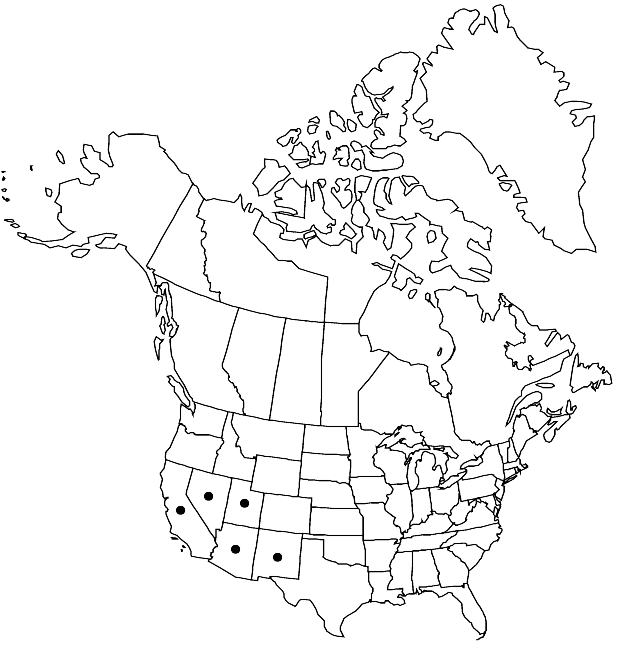familyBrassicaceae
genusDescurainia
speciesDescurainia pinnata
subspeciesDescurainia pinnata subsp. glabra
Descurainia pinnata subsp. glabra
Amer. Midl. Naturalist 22: 507. 1939.
Basionym: Sophia glabra Wooton & Standley
Synonyms: Descurainia pinnata var. glabra (Wooton & Standley) Shinners
Revision as of 18:00, 18 September 2019 by FNA>Volume Importer
Plants eglandular, not canescent. Stems unbranched basally, branched distally. Racemes: rachis glabrous, eglandular. Fruiting pedicels divaricate to horizontal or descending, forming 70–90(–100)º angle, 4–10(–15) mm. Flowers: sepals rose (at least apically), 0.8–1.5 mm; petals 1–1.8 × 0.3–0.7 mm.
Phenology: Flowering Feb–Apr(-Jun).
Habitat: Sandy washes and beds, scrub and bush communities, granitic sand, under junipers, oak and pine woodlands, stream beds, sagebrush, floodplains, limestone outcrops
Elevation: 300-2400 m
Distribution

Ariz., Calif., Nev., N.Mex., Utah, Mexico (Baja California, Chihuahua, Coahuila, Hidalgo, Sonora).
Discussion
Selected References
None.
Lower Taxa
None.
... more about "Descurainia pinnata subsp. glabra"